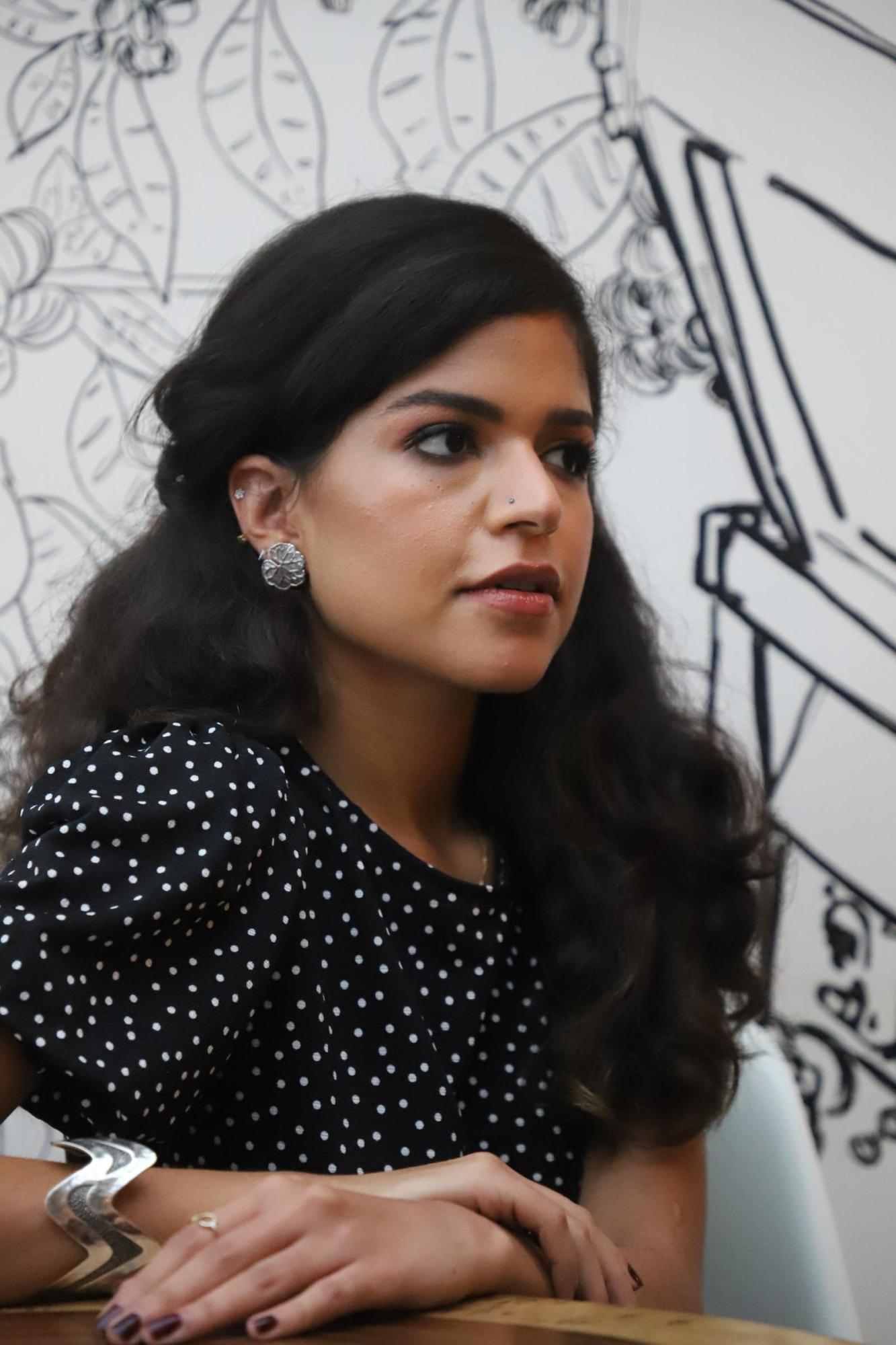Meet Teaching Artist María Barrios


María Alejandra Barrios is a writer born in Barranquilla, Colombia, living in Brooklyn. She has lived in Bogotá and Manchester, where in 2016 she completed a master's degree in creative writing from the University of Manchester. Her stories have been published in Hobart Pulp, Reservoir Journal, Cosmonauts Avenue, Jellyfish Review, Lost Balloon, Shenandoah Literary, Vol.1 Brooklyn, and Fractured Lit, among others. She was the 2020 SmokeLong Flash Fiction Fellow, and her work has been supported by organizations such as Vermont Studio Center, Caldera Arts Center, and the New Orleans Writing Residency. María teaches fiction at places such as Paragraph NY and Gotham Writers. She is passionate about teaching short fiction and flash. She loves talking about the power of point of view and unexpected narratives. María loves teaching generative classes that are fun, engaging, and accessible to all levels.
To see María's current class line up, visit her artist bio page.
***
When did you start teaching? What path—career or otherwise—brought you here?
I started teaching because I find it so creative and rewarding. It's such a gift to be able to create a class that you know is going to help others in their practice. Before I taught creative writing, I used to teach history back in Colombia where I lived. After my MA in creative writing, and many writing classes, I started teaching short fiction. I was inspired by my love for it and the need to share a more open approach when it comes to teaching creative writing.
I believe in teaching that highlights the endless possibilities that come with the white page rather than following prescriptive norms.
How would you describe your teaching style?
Very open and generative. I'm not very prescriptive when it comes to writing, and I love a warm class environment, so I focus on writing exercises, reading discussions, and questions. I don't like how-tos because I find them limiting. For me, a good class is all about creation, discussion, and joy.
When it comes to imagining and creating classes, where do your ideas come from? What in particular inspires you?
A good story that gets stuck in my head like a song. The work of students when they share their writing and art that I see in museums or that I discover while researching and find interesting. One of the things that I love to talk about in classes is the power of observation. How it makes our writing seem more real and vivid but also how observing the world and our lives more carefully can lead to countless stories. Combining these elements I create prompts inspired by the world, art, folk-tales, and stories that try experimental formats or defy conventions and encourage the students to try it on their own.
What's the ideal environment for your classroom? What atmosphere are you hoping to establish?
A warm, respectful, and curious environment where everyone cheers each other on but also reads their work carefully and asks relevant questions. I love creating spaces where we are rigorous and serious about our writing practice but we're also open to joy, camaraderie, and support.
Regardless of what your class is specifically focusing on, what's the main goal you have for your students?
To generate writing that brings them joy and to complete stories. Supporting students in their writing practice for it to be sustainable but also something they enjoy. When we love things we do them more often.
What are goals you have for yourself? These could be teaching goals, writing goals, career goals, community goals, etc.
My goal for this class is to meet every writer where they are at and help them complete a draft of their story. Cultivating curiosity for the process and providing them with tools to keep going as they approach every stage of their story.
What have been some of your own favorite educational experiences?
One of my favorite recent experiences has been to teach a magical realism workshop with the nonprofit Girls Write Now! It was such a wonderful experience to lead a space where we approached a political and literary genre with care and attention to the history. And at the same time, where we left space for experimentation and play with this genre and to produce work that had magical elements and was quick to establish a world where everything was possible. I loved introducing the students to new ways to structure their work and show them that not all good stories are linear.
To you personally, what is the most important part of the literary arts?
Community and diversity. Everything that I've learned along the way about writing and every opportunity that has been given to me by a mentor who has believed in my work has lifted me and helped me to keep going when I didn't believe myself. Those spaces, nudges, opportunities have been invaluable in my practice. I want to be part of a literary environment where we support each other critically and wholeheartedly.